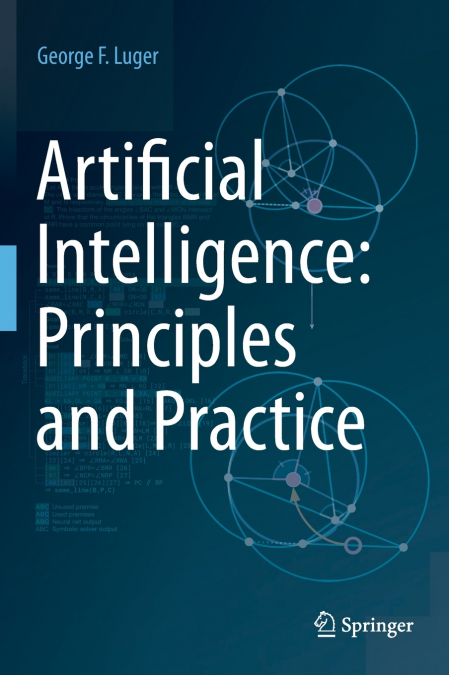
George F. Luger
This book provides a complete introduction to Artificial Intelligence, covering foundational computational technologies, mathematical principles, philosophical considerations, and engineering disciplines essential for understanding AI. Artificial Intelligence: Principles and Practice emphasizes the interdisciplinary nature of AI, integrating insights from psychology, mathematics, neuroscience, and more. The book addresses limitations, ethical issues, and the future promise of AI, emphasizing the importance of ethical considerations in integrating AI into modern society. With a modular design, it offers flexibility for instructors and students to focus on specific components of AI, while also providing a holistic view of the field. Taking a comprehensive but concise perspective on the major elements of the field; from historical background to design practices, ethical issues and more, Artificial Intelligence: Principles and Practice provides the foundations needed for undergraduate or graduate-level courses. The important design paradigms and approaches to AI are explained in a clear, easy-to-understand manner so that readers will be able to master the algorithms, processes, and methods described. The principal intellectual and ethical foundations for creating artificially intelligent artifacts are presented in Parts I and VIII. Part I offers the philosophical, mathematical, and engineering basis for our current AI practice. Part VIII presents ethical concerns for the development and use of AI. Part VIII also discusses fundamental limiting factors in the development of AI technology as well as hints at AI’s promising future. We recommended that PART I be used to introduce the AI discipline and that Part VIII be discussed after the AI practice materials. Parts II through VII present the three main paradigms of current AI practice: the symbol-based, the neural network or connectionist, and the probabilistic. Generous use of examples throughout helps illustrate the concepts, and separate end-of-chapter exercises are included. Teaching resources include a solutions manual for the exercises, PowerPoint presentation, and implementations for the algorithms in the book.